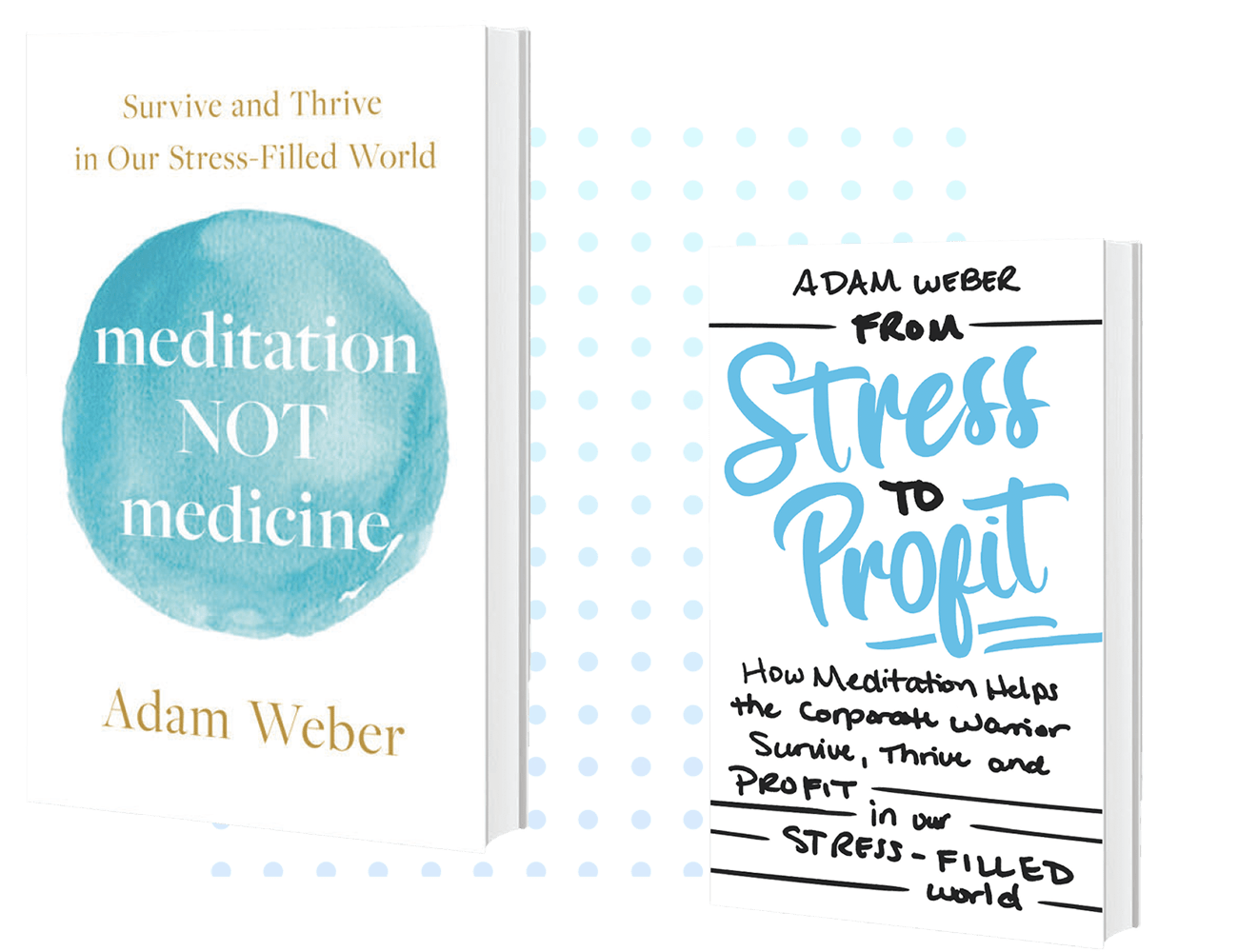I speak and train both individuals and groups about meditation, and I am asked lots of questions because meditation is new to many people.
It is not abnormal for someone to approach me after the talk and tell me that they were scared to ask the question during the question and answer session because they believed that they would be the only one with that question or that they would feel stupid asking the question. Always ask. If we live together, ask me. If we are virtual, ask me. Ask me on social media. Email me. Just ask.
In the rest of this chapter, I will address many of the challenges and questions that people have, and answer many of the questions I am asked.
Q: I am very busy; I don’t have time to meditate
How many times do you hear someone say they don’t have time? How many times do you, yourself, say those words?
A: Meditation takes minutes a day, not hours. As Marie Forleo says, “Everything is Figureoutable”. If you can find time to surf the internet or watch tv than you can find minutes, yes minutes to meditate. Figure it out and just do it. Meditate, just meditate.
Q: I am a beginner, Is meditation hard?
A: Meditation is not hard or difficult. It is actually very straight forward and easy. The most difficult part of developing a meditation practice or habit is just getting started.
Q: What do I need to start meditating?
A: You do not need much. You need to be willing to take a seat and try meditation. You just need to get started and have a beginner’s mind.
Q: Should I be nervous to start meditating?
A: Not at all. Trying new things can be daunting to some but there is nothing to be nervous about. You just need to get started.
Q: How often should I Meditate?
A: Ideally, you will develop a meditation practice in which you meditate once a day, or even more often, possibly twice a day.
Q: Where should I meditate?
A: Ideally, the place you should meditate should be a quiet place free from visual and audio distractions. It can be helpful to choose a place that you can meditate, a place that you can return to over and over again. Meditation requires some focus. The longer you meditate, the more flexible you will be with your practices’ location.
You cannot always meditate in the same place. Wherever you choose to meditate, aim for a comfortable place that you will not be disturbed.
Q: What is the best time to meditate?
A: While there are no hard-set rules about when to meditate, some people prefer to meditate in the morning before breakfast, and then again later in the day or evening.
Choose a time that works for you. At first, meditation may seem like a job, but you will learn to enjoy it, and look forward to it every day. Try to view your meditation practice as an opportunity to relax your mind, rather than an item on your to-do list. It is an opportunity to spend some quiet time alone with yourself. Develop your meditation practice as a habit that you’d do naturally every day, like brushing of your teeth or combing your hair.
Q: How long and how often should I meditate for each time?
A: It is up to you to decide how long you should meditate for. Aim to meditate for at least 3 minutes to start and build on it from there. I suggest and teach my students to start with 3 minutes and build upon it.
For most people, it will normally take a few minutes for the mind to settle down. If your meditation is too short, you might find the session has ended before you even have a chance to get into it. Stick with it though.
The most important thing is to make meditation a regular habit. Creating a meditation habit creates its own momentum, and it becomes easier to practice over time.
Q: I am having difficulty concentrating. What should I do.
A: I respond by asking them “what are you concentrating on?” To concentrate, you need to start by relaxing your body. An effective way to release tension is to inhale and tense the whole body, and then release the tension as you exhale., in other words breathe.
Q: Should I breathe regularly when I meditate?
A: Remember to breathe normally. If you yawn while meditating, don’t worry. This is actually normal
Q: What should I expect with meditation?
A: Try not to expect much. The idea is to relax and stop overthinking.
Q: Should I use a timer?
A: If you want to you can. I include timed meditations in my online course, Easy to Meditate, and when I teach in person. It is ok to periodically glance at a clock or watch but train your body and mind to meditate for your desired time period until it becomes second nature.
There are several meditation apps available for your smart phone and other timers available for a small investment.
Q: Why do I find it so hard to concentrate or sit still during meditation?
A: Many people, including experienced long-time meditators, experience occasions when they find their concentration is not as focused as they want it to be.
It is important to be gentle and patient with yourself, especially if you are a beginner. Meditation helps you calm your mind, but it may not start that way. If you find yourself having a hard time sitting still during meditation, try to avoid anything that stimulates your mind just before you start meditating because it is not going to be very helpful.
Some people also find stretching before meditation helps them to get into a relaxed state faster.
Q: I feel odd when meditating. Am I doing this right?
A: You may feel at peace or your mind might race when you are meditating. You might question whether you are doing it correctly. Whatever you feel, do not worry. Whether you are starting a new practice or have been practicing for a while you might feel restless at times. I liken it to a radio that is staticky and not tuned in.
Q: I have fallen asleep when meditating. Am I meditating correctly?
A: Falling asleep is actually a common problem, especially because meditation is a silent practice. Do not let this get you stressed. Make sure that you are getting enough sleep. Meditation is not a substitution for sleep, so sleep.
Make sure you sit when meditating because laying down may trigger your body into sleep mode. You can also try shortening your meditation sessions.
With time your mind will learn to stay calm, awake and alert.
Q: When I meditate, I feel like I’m betraying my religious beliefs. Why is that?
A: This is a common myth. Meditation is often associated with foreign cultures and religions, such as Buddhism, because it originated from there.
That is why many people have mistakenly equated meditation with a religion, but it is not.
While it is true that some religions include meditation as part of their observance, Easy to Meditate is not religious.
Q: Should I close my eyes?
A: Close your eyes is optional, but I recommend it. It is not necessary to close your eyes while doing meditation.
Meditating with your eyes opened or closed is a personal preference. You should experiment to see what feels comfortable and gives you the best results.
Q: What should I wear when meditating?
A: While there is no specific dress code for meditation, I recommend that you wear something nonrestrictive and comfortable. Always be comfortable.
Q: What should I do if I feel like I am going to fall asleep during Easy to Meditate?
A: Allowing more light to enter your eyes is a good way to stay awake. Lifting your eyelids higher, while keeping your gaze soft and unfocused, will help to keep the brain stimulated and alert. Your physical and mental states also play a key role.
When you are lethargic, it is much harder to concentrate, which means you will need to put in more effort to stay awake. Accept it and remind yourself to keep at it.
Q: How do I know I am meditating?
A: When you are focused on your breathing, yet fully aware of the random thoughts in your mind and not distracted by them you are meditating.
Q; Do I need a teacher to learn how to meditate?
A: No, you do not a need to have an instructor Some people figure it out on their own, but for some it does help to have a teacher or as I like to say, a guide.
With some complex forms of meditation, a teacher is a must but not when you work with me and my proprietary method I teach, Easy to Meditate.
Q; When should I get some help with learning to meditate?
A: First, I hope that if you feel that you need to get some help with learning to meditate that it does not scare you off from learning to meditate.
Meditation has often been presented as a simple practice that is easy to learn. That is not true with all types and forms but with Easy to Meditate I offer a simple and easy approach to learning how to meditate.
Q; How do I stay motivated to meditate?
A: Meditation is a habit that is worth starting and sticking with because there are many benefits associated with a regular Easy to Meditate meditation practice. That will motivate you.
The benefits that you get from meditation are cumulative. This means that as you continue to meditate daily, you will gain more and more benefits. That will motivate you.


